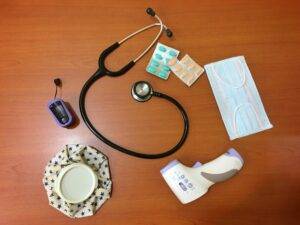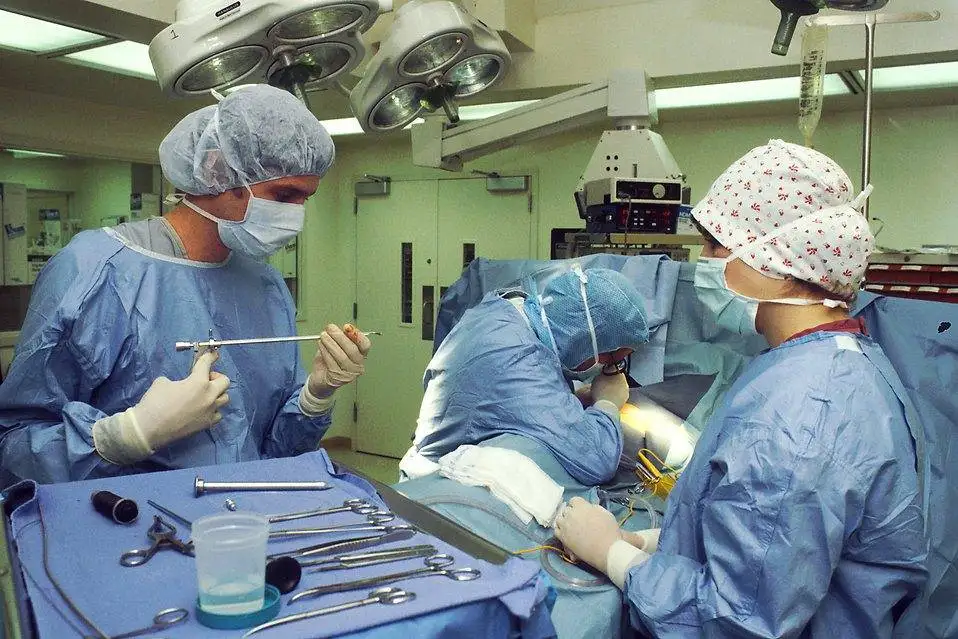Routine checkups are a cornerstone of pediatric healthcare, providing a structured approach to monitoring the health and development of children. These visits are essential for ensuring that children grow up healthy, receive timely vaccinations, and address emerging health concerns early.
This comprehensive guide explores the numerous benefits of routine checkups, what parents and children expect during these visits, and how to prepare for them effectively.
Monitoring Growth and Development
1. Tracking Physical Growth
Regular checkups are crucial for tracking a child’s physical growth. During each visit, healthcare providers measure height, weight, and head circumference, for infants and toddlers. These measurements are plotted on growth charts, which help to compare the child’s growth to national averages.
This process helps identify potential growth concerns early, allowing for timely interventions. Regular monitoring ensures that children are developing at a healthy and expected rate.
2. Assessing Physical Milestones
In addition to measuring physical growth, routine checkups involve assessing whether children reach developmental milestones. These milestones include rolling over, sitting up, and crawling for infants. As children grow older, milestones are walking, talking, and developing fine motor skills, such as using utensils or drawing.
Early identification of delays in these milestones leads to early interventions, such as physical or occupational therapy, improving a child’s development trajectory.
3. Evaluating Cognitive and Social Development
Cognitive and social development are equally important aspects of a child’s growth. During routine checkups, healthcare providers evaluate a child’s ability to think, learn, and interact with others. They observe how a child communicates, plays, and solves problems.
Early detection of cognitive or social challenges, such as difficulty with language or social interactions, allows for referrals to specialists, such as speech therapists or psychologists. Early intervention helps children overcome developmental hurdles and reach their full potential.
Early Detection of Health Issues
4. Importance of Preventive Care
Routine checkups are vital for the early detection of potential health issues. Preventive care is a fundamental aspect of these visits, as it aims to prevent illness before it occurs. Immunizations, a key component of preventive care, protect children from serious diseases such as measles, mumps, and whooping cough.
Staying up-to-date with vaccinations ensures that children are safeguarded against preventable illnesses, contributing to public health.
5. Regular Screenings for Common Conditions
Routine checkups include screenings for common conditions. These screenings detect vision and hearing problems, anemia, lead poisoning, and high cholesterol levels. Early detection of these conditions is critical, allowing prompt treatment and management.
For instance, early detection of vision problems leads to corrective measures, such as glasses, which significantly improve a child’s quality of life and academic performance.
6. Identifying Behavioral and Mental Health Concerns
Behavioral and mental health are integral components of a child’s overall well-being. Routine checkups enable healthcare providers to assess a child’s behavioral and emotional health. Providers may ask about a child’s mood, behavior at home and school, and social interactions.
Early identification of issues such as anxiety, depression, or attention-deficit/ hyperactivity disorder (ADHD) leads to timely interventions. Addressing these concerns early significantly impacts a child’s mental health trajectory, helping them develop healthy coping mechanisms and thrive emotionally.
Building a Relationship with the Healthcare Provider
7. Establishing Trust and Communication
Routine checkups involve assessing physical health and building a strong relationship between the child, parents, and the healthcare provider. This relationship fosters trust and open communication for effective healthcare. When children and parents trust their healthcare provider, they are more likely to share concerns and follow medical advice.
This trust leads to better health outcomes and a more positive healthcare experience.
8. Ensuring Continuity of Care
A consistent healthcare provider familiar with a child’s medical history and family background ensures continuity of care. This continuity is important for managing chronic conditions, of asthma or diabetes. A healthcare provider who knows the child’s health history makes informed decisions and provides personalized care.
This relationship also allows the provider to track the child’s progress, making changes or emerging health concerns easier to detect.
9. Providing Parental Guidance and Education
Routine checkups are valuable for parents to receive guidance and education on aspects of child health. Healthcare providers offer advice on nutrition, physical activity, sleep, and safety. They also address parents’ concerns, such as picky eating, sleep difficulties, or behavioral issues.
Educating parents empowers them to make informed decisions about their child’s health and well-being, creating a supportive environment for the child’s development.
Encouraging Healthy Habits Early On
10. Role Modeling Healthy Behaviors
Establishing a routine of regular checkups encourages children to develop healthy habits from a young age. When children see their parents prioritizing health visits, they learn the importance of their health.
Parents use routine checkups to role model healthy behaviors, such as asking questions about health, following medical advice, and maintaining a healthy lifestyle. These early lessons instill lifelong habits in children, helping them stay healthy as they grow older.
11. Empowering Children to Take Charge of Their Health
As children grow older, routine checkups become a chance to empower them to take charge of their health. Healthcare providers engage with older children and teenagers, encouraging them to ask questions and participate in their care. This involvement helps children develop a sense of responsibility and independence in managing their health.
Parents and healthcare providers help children build the skills and confidence they need to make healthy choices.
What to Expect During Routine Checkups
Initial Assessment and Medical History
Knowing what to expect during routine checkups helps parents and children feel more comfortable and prepared for these visits. The checkup starts with an initial assessment, where the healthcare provider takes a detailed medical history.
This includes information about the child’s birth, family health history, and previous illnesses or surgeries. The provider may ask about the child’s daily habits, such as diet, sleep, and physical activity. This information helps the provider understand the child’s health and identify any areas of concern.
Comprehensive Physical Examination
Following the initial assessment, the healthcare provider performs a thorough physical examination. This examination includes checking the child’s vital signs, such as temperature, heart rate, and blood pressure. The provider examines the child’s eyes, ears, nose, throat, chest, abdomen, and limbs to ensure everything functions correctly.
For younger children, the provider checks reflexes and developmental milestones. This comprehensive examination helps identify any physical health issues needing further evaluation or treatment.
Developmental and Behavioral Screening
Developmental and behavioral screenings are part of routine checkups, especially for younger children. These screenings involve questions and observations about the child’s development and behavior. The provider asks about the child’s language skills, social interactions, and problem-solving abilities
These screenings help identify developmental delays or behavioral concerns early, allowing for timely interventions. If issues are identified, the provider may refer the child to a specialist for further evaluation and support.
Vaccinations and Laboratory Tests
Depending on the child’s age and health status, vaccinations and laboratory tests are administered during the checkup. Vaccinations are essential in preventive care, protecting children from serious diseases. The provider explains the purpose of vaccinations and addresses any questions or concerns parents or the child may have.
Laboratory tests, such as blood or urine tests, are also conducted to screen for conditions like anemia, diabetes, or infections. These tests ensure that any underlying health issues are identified and managed appropriately.
Discussion and Personalized Advice
The final part of the routine checkup involves a discussion between the healthcare provider, parents, and the child. The provider reviews their findings from the examination and screenings, offering advice on any health or developmental issues.
This discussion includes recommendations for nutrition, physical activity, sleep, and other aspects of healthy living. The provider addresses any questions or concerns of the parents or child, ensuring that all aspects of the child’s health are covered. This open communication helps parents feel confident in managing their child’s health.
How to Prepare for Routine Checkups
Gathering Health Information
Preparing for routine checkups helps ensure the visit goes smoothly and concerns are addressed. Before the checkup, parents gather all relevant health information, including the child’s medical history, vaccination records, and any recent test results.
Having all the information helps the healthcare provider make informed decisions about the child’s care. Parents should also list the medications the child is taking, including dosages and schedules, to provide the provider with a complete picture of the child’s health.
Writing Down Questions and Concerns
Write down any questions or concerns about your child’s health before the visit. This ensures that all topics are covered during the appointment, and all important details are covered. Questions include inquiries about the child’s growth, development, behavior, nutrition, or health issues.
Writing questions in advance helps parents feel organized and confident during the checkup, ensuring they get the needed information and support.
Preparing the Child for the Visit
Parents help their child feel comfortable about the visit by explaining what will happen during the checkup simply and reassuringly. For younger children, reading books or watching videos about doctor visits are helpful. These resources help demystify the experience and reduce anxiety.
For older children, discussing the importance of routine checkups and involving them in the process eases any anxiety. Parents encourage older children to think of any questions for the healthcare provider, empowering them to take an active role in their health.
The Role of Routine Checkups in Long-Term Health
Routine checkups have a profound impact on a child’s long-term health. By establishing a foundation of regular healthcare visits, children are more likely to maintain healthy habits and seek medical care when needed throughout their lives.
Preventing Chronic Conditions
Routine checkups prevent chronic conditions and ensure long-term health. By identifying and addressing health issues early, healthcare providers help prevent serious conditions. For example, monitoring blood pressure and cholesterol helps prevent heart disease later in life.
Early detection and management of conditions such as asthma or diabetes also improve a child’s quality of life and reduce the risk of complications. parents help their children build a strong foundation for a healthy future by prioritizing routine checkups.
Fostering a Positive Attitude Towards Healthcare
Establishing a routine of regular checkups fosters a positive attitude towards healthcare in children. When they grow up with regular health visits, they learn that healthcare is a normal and important part of life. This positive attitude carries into adulthood, encouraging them to prioritize their health and seek medical care when needed.
A Complete Guide on Developmental Screenings: 4 Reasons on Their Importance By making routine checkups a positive and supportive experience, parents help their children develop a lifelong commitment to their health and well-being.
Common Myths About Routine Checkups
There are several myths and misconceptions about routine checkups. Here, we debunk some of the most common ones:
Myth 1: Routine Checkups Are Only Necessary When the Child Is Sick
Fact: Routine checkups are essential for monitoring growth, development, and preventive care. They help detect potential health issues before they become serious.
Myth 2: Vaccinations Are Not Necessary After Infancy
Fact: Vaccinations are necessary throughout childhood to protect against various diseases. Following the recommended vaccination schedule ensures children are protected at different stages of their development.
Myth 3: Routine Checkups Are Time-Consuming and Unnecessary
Fact: Routine checkups are a small time investment with significant long-term benefits. They provide an opportunity to address health concerns, receive preventive care, and ensure overall well-being.
Prioritize Your Child’s Health Through Routine Checkups 
Routine checkups are a fundamental aspect of pediatric healthcare–a cornerstone of preventive healthcare for children. It provides numerous benefits for children’s health and development. By understanding the importance of routine checkups and knowing what to expect, parents ensure their children receive the best possible care.
For more information on child health and routine checkups, visit Omegapediatrics.com. Here are a couple of articles you may find useful:
- Integrative Pediatrics: A Holistic Approach to Child Healthcare
- Why After-Hours Pediatrics is the Future of Children’s Healthcare
Routine checkups are not just about checking for illnesses; they are about ensuring your child’s overall well-being and fostering a healthy future. So, make those appointments, stay informed, and keep your child on the path to good health.
Regular checkups help keep children healthy today and set the foundation for a lifetime of good health.







